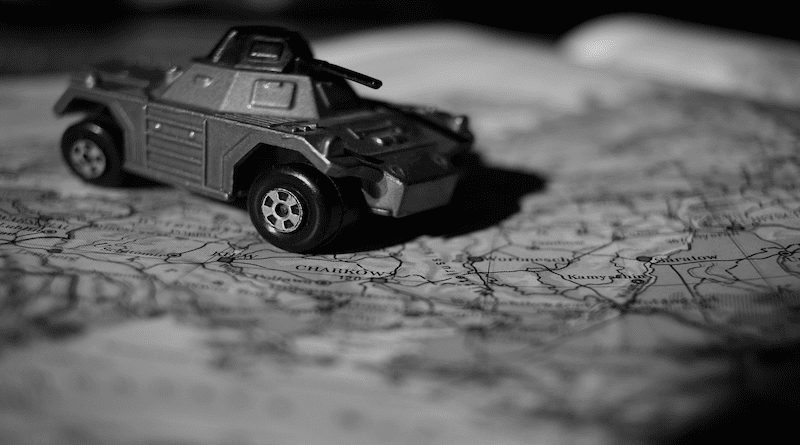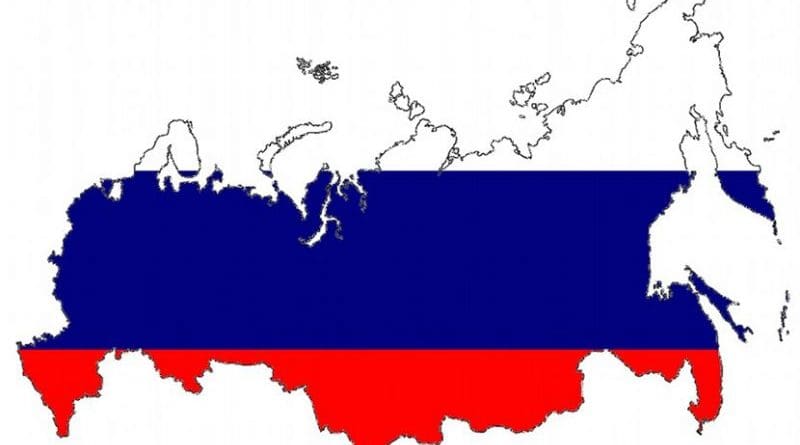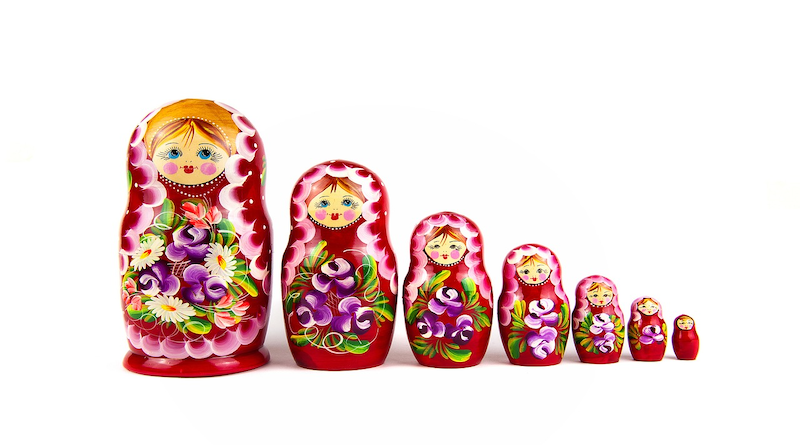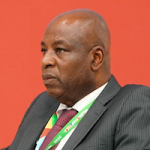
Former British Minister’s Bizarre Warning Of Russian Attack Is Admission Of Britain’s Nefarious Role In Kursk – OpEd
When former British military chief Ben Wallace wrote his bizarre op-ed last month warning that “Putin will soon turn his war machine on Britain”, it may have come across as the usual Russophobic scaremongering.
The ex-minister of defense wrote in the Daily Telegraph that “Britain’s in Putin’s crosshairs… Make no mistake Putin is coming for us.”
He painted the Russian leader and its top generals as unhinged madmen who were driven by revenge for old scores like the Crimean War in the 1850s.
Wallace, who served as a British army captain and was the minister of defense under three Conservative prime ministers between 2019 and 2023, is known for his hawkish anti-Russia views. He previously told the Times newspaper that Britain must be prepared to fight wars alone without the help of the U.S. He has compared Putin to Hitler, and he once claimed that the Scots Guards – the regiment in which he served – “kicked Russian asses” in the Crimean War and could do so again.
But, in hindsight, his Telegraph op-ed was not so much the usual belligerent rant to whip up Russophobia. This was not a mere paranoid warning of Russia’s alleged malign intent, but rather it was more an admission of British guilt in recklessly escalating the proxy war in Ukraine.
Wallace claimed, somewhat curiously, that Britain would be the primary target for any Russian military attack, not the United States. What made him say that? After all, the U.S. is by far the biggest military backer of the Kiev regime.
Pointedly, Wallace emphatically denied in his article published on August 26 that Britain had played any role in Ukraine’s offensive on Russia’s Kursk region. That offensive was launched on August 6. The incursion appears now to have been a military disaster for the Kiev regime with nearly 15,000 of its troops killed and hundreds of NATO-supplied armored vehicles destroyed.
As the offensive in Kursk flounders and Russia pushes on with rapid gains in the Donbass region of formerly eastern Ukraine, it is becoming more clear that Britain took a leading role among the NATO sponsors of the Kiev regime in promoting the Kursk offensive.
Captured Ukrainian troops have told how British marines trained and directed them to take on audacious missions. The military purpose of the missions was not precise or pragmatic. Their main objective was to create propaganda victories by raising Ukrainian flags on Russian territory.
This week, another British military insider, Sean Bell, who was the former air vice marshall of the RAF, urged the NATO-backed Ukrainian regime to “inflict maximum pain” on Russia. The former RAF commander was referring to the Kursk offensive and an expansion of air strikes on Russian territory.
This comes as Britain’s new Labour prime minister Keir Starmer is consulting with U.S. president Joe Biden on granting Ukraine permission to use long-range missiles to hit deep inside Russia. Starmer and his new defense minister John Healey have been keen to demonstrate that their government is every bit as gung-ho as the Conservative predecessors in supporting Ukraine militarily.
It also comes as the Russian state security service, FSB, claims that leaked documents it has obtained show that Britain is taking a leading role among Western adversaries in ramping up military and political tensions with Moscow.
When the Kursk offensive kicked off last month, NATO leaders were adamant that they were not involved in the planning. By contrast, the Kiev regime hinted that NATO was.
Despite the official denials, sections of the British media couldn’t contain their excitement in what appeared in the initial stage to be a lightning punch in the nose for Putin.
It was reported that Ukrainian troops had been trained in Britain prior to the incursion. While the Daily Mail blared that British Challenger tanks were “leading Ukraine’s advance into Russia’s Kursk and Belgorod regions”.
The Times reported smugly that “British equipment, including drones, has played a central role in Ukraine’s new offensive and British personnel have been closely advising the Ukrainian military.”
Since the NATO proxy war against Russia erupted in Ukraine in February 2022, the British have been intensely involved in training commandos to carry out raids on Russian territory, according to Britain’s Royal Navy publicity.
Despite Ben Wallace’s assertion that Britain had no planning involvement in the Kursk offensive, it seems clear that his denial is a lie. Britain was and presumably still is heavily involved. It is known that mercenaries from other NATO states are on the ground in Kursk. But the British role is prominent in leading the charge (from behind, that is).
That charge has now run into a dead-end with heavy losses among Ukrainian troops. For the British planners, however, the military losses are of little importance. The Ukrainians were merely cannon fodder in a PR stunt to embarrass Putin and to whip up another round of military aid.
Britain has a sordid historical role in starting wars in Europe. Ben Wallace in his Telegraph op-ed mocked Putin for blaming Britain for being behind the Crimean War and the rise of Nazi Germany. On both counts, it is accurate to condemn Britain. What was it doing anyway sending troops to Crimea in the 1850s? And the covert role of Britain in financing, arming, and giving Hitler a free hand to attack the Soviet Union during the 1930s was a major contributor to fomenting World War Two, a war in which up to 30 million Soviet people were killed.
Today, Perfidious Albion is stoking the proxy war against Russia, which could lead to a nuclear Third World War. Its sinister fingerprints are all over the Kursk provocation. The has-been empire is trying to inflate its geopolitical importance among Western partners through machinations and manipulation. Even at the risk of inciting an all-out world war.
Ben Wallace’s bizarre op-ed about Russia “coming for us” can be better understood as an admission of Britain’s guilt and not simply another absurd Russophobic rant. The old Tory warmonger was projecting the reality of Britain’s nefarious role in escalating the proxy war. The British establishment knows that if Russia goes on to take reprisal, it has it coming. Its pretense of innocence is classic British dissembling.

Finian Cunningham
Finian Cunningham has written extensively on international affairs, with articles published in several languages. He is a Master’s graduate in Agricultural Chemistry and worked as a scientific editor for the Royal Society of Chemistry, Cambridge, England, before pursuing a career in newspaper journalism.

Wanting To Keep Russia In One Piece Not The Same Thing As Wanting To Keep Putin In Power – OpEd
By Paul Goble
There are legitimate reasons for believing that the Russian Federation should come apart but there are also legitimate reasons for believing that it would be better for it to remain in one piece, Vladimir Pastukhov says. But there is one aspect of this debate that is not legitimate.
And that is this, the London-based Russian analyst says. Far from all those who believe Russia should remain in one piece want Putin to remain in power (t.me/v_pastukhov/1248 reposted at echofm.online/opinions/stremlenie-sohranit-rossiyu-ne-tozhdestvenno-stremleniyu-sohranit-putinskij-rezhim).
The debate between those who favor disintegration and those who oppose it has reached “the boiling point” and threatens to become a serious headache for Russia’s political class, he continues. It isn’t helped by suggesting that support for the territorial integrity of Russia is all about supporting Putin
It is time to lower the temperature, Pastukhov says. The arguments of those favoring disintegration ultimately rest on “the idea that such a vast territory cannot be governed except with the help of a hyper-centralized machine of violence that will sooner or later start a war with its neighbors in the interest of self-preservation.
“There are, of course, also purely decolonizing motivations, but they are not of a specific nature, and the logic of those favoring independence for the Basque country is unlikely to differ from that of backers of independence for Sakha. Sometimes, however, additional “toys” are hung on this “Christmas tree” in the form of accusations that Russians are innately aggressive.
But, Pastukhov argues, “I would not focus on Russians alone here, because in similar situations the same thing was written about other peoples experiencing a cultural default such as the Germans in the last century. And over time this goes away. That is, the dispute about the influence of the territory on culture, political system and foreign policy is fundamental.”
“Who and under what circumstances will argue on this topic? If they win, Putin or his successors will obviously not “dissolve Russia” themselves. In the event of Russia’s defeat in any nuclear war, the subject of dispute will most likely disappear. And if something does remain, the occupation authorities will divide the ruins without asking anyone.”
Pastukhov continues: There “thus remains only the chance that some victorious revolutionary party will independently divide Russia into parts after coming to power. But I have some doubts that a party which openly writes on its banners that its goal is the dismemberment of Russia has a real chance of victory in the coming Russian revolution.”
And that reduces to a theoretical discussion any debate about this issue among Russians, the commentator suggests.

Russia-Ukraine: Tension, Inability Of Western Allies To Understand Mystery Of Russian Soul – OpEd
There is nothing more difficult and yet more gratifying in our world today than living with sincerity and acting from a place of large-heartedness towards humanity’s growth and betterment. Politics or no politics, Geopolitics or no geopolitics, the truth is that Russians are very pleasant people and the common features of the Russian character are generosity, resilience, and strength. Russians are people of humanity. Humanitarian assistance is embedded in their culture and ways of life. Russians believe in the oneness of all human beings. They believe in the strong helping the weak and giving without expecting. Russians are inventive people with a huge capacity to endure and overcome big difficulties with a strong spirit. The Russian person is often a mystery because of many extremes tied together in his soul. Russians are modest and patient and can endure for a long time, but when they eventually rise, they go to the end. Courage and sacrifice for the sake of the motherland and nation is a very Russian trait. Cold planning and calculations as it is in the West are not for the Russians. They are pushed by brilliant insights and unconventional thinking.
They stopped Napoleon and saved the world, got no enough gratitude from the world, and still felt all right with that. They stopped Hitler and saved the world from fascism, got no enough gratitude from the world, and also felt all right with that. However, Russians have a sense of history. They have not forgotten and will never forget how in the process of saving the world from fascism lost about 27 million of its citizens, entire families beheaded, babies burned, mothers bayoneted, and little kids short in the back.
Patriotism holds an important place in Russian culture. They are proud of their history and contributions to the world. Russian Federation is the largest nation in the world, spanning 11 time zones and many different geographical environments. Russia contains an incredible diversity of people, beliefs, values, and lifestyles. Russia is a particularistic and collectivistic society. Russia does not like uncertainty and highly values stability and security. The expansion of NATO close to Russian borders is a serious source of concern, uncertainty, instability, and insecurity. The thought of Ukraine becoming a member of NATO which is the cause of present tension between Russia and the West is a dark red line for Russia. They will never allow it no matter the circumstances. The mystery of the Russian soul shows that they have risen and they are prepared to go to the end. My humble advice is that the West should look at the demands and enter into serious negotiations with Russia. They should reconsider the idea of Ukraine becoming a member of NATO. I think Russia will never allow it to happen and Ukrainian leadership should know this too well and must be very careful in navigating this difficult period of their history.
There is a popular aphorism in the former Soviet Union which says that whenever Ukrainian is born the Jews cries. The Ukraine people are intelligent people and they need that their intelligence to avoid the impending doom and catastrophe that is about to befall on their nation. Geographically, they are neighbor to Russia and with common boarder. And an attempt to join NATO is not the best way to be a good neighbor to your big neighbor which is Russia. The tie between Russia and Ukraine is so deep and historical. It dates back to at least the 9th century with the founding of Kyivian Rus, the first East Slavic state. They are close relatives and at the beginning of the 20th century, the Russians formed the largest ethnic group in almost all the large cities within Ukraine’s modern borders including Kyiv, Kharkiv, Odesa, Mykolaiv, Donetsk, Luhansk, Mariupol, Ekaterinoslav, Kropyvnytskyi, Sevastopol, Kerch, Yalta and Simferopol. This shows a widespread presence of Russian-speaking individuals in urban centers across Ukraine. The Russian-speaking population in Ukraine has been a significant demographic factor, especially in the eastern and southern regions, and has played a crucial role in the linguistic and cultural landscape of the country. According to the 2001 Ukraine census, individuals who identify themselves as ethnic Russians accounted for 17.3% of the population of Ukraine. In the western and central regions, Ukrainian has been the predominant language in these regions, and there has been a historical emphasis on Ukraine’s national identity and independence. Russia has swallowed a bitter pill of NATO admitting former member-nations of Soviet Union and Warsaw pact into its fold over the years and some of these countries are even becoming hyperkinetic aggressive towards Russia under the NATO umbrella.
The golden rule says you do unto others what you will like others to do to you but unfortunately, in today’s world there are tiny group of individuals who decides what happens in it. This tiny group of people are sometimes called global decision makers or international decision makers. This golden rule is not for them and it is unimaginable the level of insanity this tiny group of people are willing to exhibit in order to protect their so-called interest. The world should know that any conflict between Russia and Ukraine as result of an attempt by Ukraine to become a member of NATO will encompass a range of issues including threat of nuclear war with its broader implication to global security. In the request by Russia on NATO to hold talks with its on-security guarantees, Russia made it loud and clear that admission of Ukraine into NATO is a dark red line that must not to be crossed. It gave reasons that the implication of having NATO bases in Ukraine would neutralize its own nuclear deterrence since it would not have enough time to react to any missile fired from Kiev that takes few minutes to reach Moscow. Russia even went as far as submitting a framework proposal to negotiate upon that would guarantee that Ukraine will remain neutral and never be admitted into NATO.
At this juncture it is important for us to refresh our memories to the Cuban crisis of the 1960s, in which the American President late President Kennedy faced the risk of a nuclear war with the Soviet Union by taking action to block the deployment of nuclear missiles in Cuba which the USA considered as its neighbor. That crisis was quietly resolved by NATO agreeing to remove the nuclear missiles deployed in Turkey which Soviet Union considered as a threat to it security and Soviet Union agreeing to withdraw the deployment of nuclear missiles in Cuba which Washington considered as a threat to its own security. USA will never tolerate deployment of Russian weapons in any of its border region such asCanada or Mexico. Why then do NATO thinks Russia will tolerate it. Sanctions will not deter Russia if they decide to invade Ukraine. Russians are prepared to do anything humanly possible in order to prevent Ukraine from slipping out of their orbit of influence or joining NATO.
Russia is such a huge and important country to the world that any attempt to seriously sanction Russia will have a devastating effect to the word economy and might not achieve the goal of the sanction. The structure of the Russian imports from the west are mainly consumable goods and services which Russia could easily find an alternatives sources of supply while the export of Russia to west are mainly products of energy and energy intensive industries which the alternatives sources are limited in nature and might not be easily replaced. Besides, Russian economy is huge and it is tied to the wellbeing of the economy of many countries and when the push comes to shove many countries will put their economic interest first and will sabotage if not outright refusal to join the sanctions against Russia.
The stage has been set and it is provocative, inflammatory and incendiary. Russia will be pushed beyond limit. It will be extremely difficult but not impossible for Russia to overcome the provocation by not invading Ukraine. I think that Russia has a deep understanding that the game being watched is not the game being played. The game being played is to bring two Slavic brotherly countries to fight each other thereby creating permanent enmity between the two countries and to use Ukraine as an instrument to weaken Russia militarily, economically, geopolitically and otherwise.
My prayers and heart go out to the Ukrainian people who have become victims in the big game of geopolitics. The people of Ukraine should pray and work hard for a political and diplomatic solution to the current crisis because the alternative will be disaster and calamity of unimaginable proportions to the Ukrainians people. The accusation that Russia wants to expand and recreate the Soviet Union has nothing to do with reality. It is mere speculation and assumption. Russian plans are not to expand Russia geographically but to protect Russian security interests from NATO expansion towards its borders.
The world is standing on many pillars but the four major and important pillars are Russia, China, Europe and United States of America. In the interest of the world peace, prosperity and development, these four pillars need to work together and not against each other. The relationship between Russia and USA is complex and multifaceted. The two nations have a long history that includes periods of both collaborations and conflict. The cold war era is often cited as a time of significant tension between these two great countries. In recent years, geopolitical events have led to strain relations. However, while there are certainly challenges in the relations between Russia and USA, it is important to recognize that the dynamics are not purely adversarial. Russia is a victim of American internal politics, American military industrial complex and American media. America needs an enemy and Russia fits that role. The American military-industrial complex needs to justify the huge defense budget. To keep the billions of defense dollars flowing, they need Russia as an enemy. The actual threat to America’s number one position economically and militarily in the world if any could be China and American internal politics. Making Russia an enemy thereby driving Russia into the hands of the Chinese is not a good foreign policy strategy. The drum of war is beating and it is beating louder and louder. During a news conference in Berlin with his German counterpart, Secretary of State Anthony Blinken warns that any invasion and act of aggression will be met with a swift, severe, and united response. As a matter of urgency, there is a need to tone down the rhetoric of war. There is an urgent need for de-escalation from all sides involved. One miscalculation or one misjudgment could trigger a disastrous war.
- This article was first published on February 6, 2022 in The Nation media. The Russia-Ukraine conflict began on February 24, 2022.

Professor Maurice Okoli
Professor Maurice Okoli is a fellow at the Institute for African Studies and the Institute of World Economy and International Relations, Russian Academy of Sciences. He is also a fellow at the North-Eastern Federal University of Russia. He is an expert at the Roscongress Foundation and the Valdai Discussion Club. As an academic researcher and economist with keen interest in current geopolitical changes and the emerging world order, Maurice Okoli frequently contributes articles for publication in reputable media portals on different aspects of the interconnection between developing and developed countries, particularly in Asia, Africa and Europe. With comments and suggestions, he can be reached via email: markolconsult@gmail.com
No comments:
Post a Comment